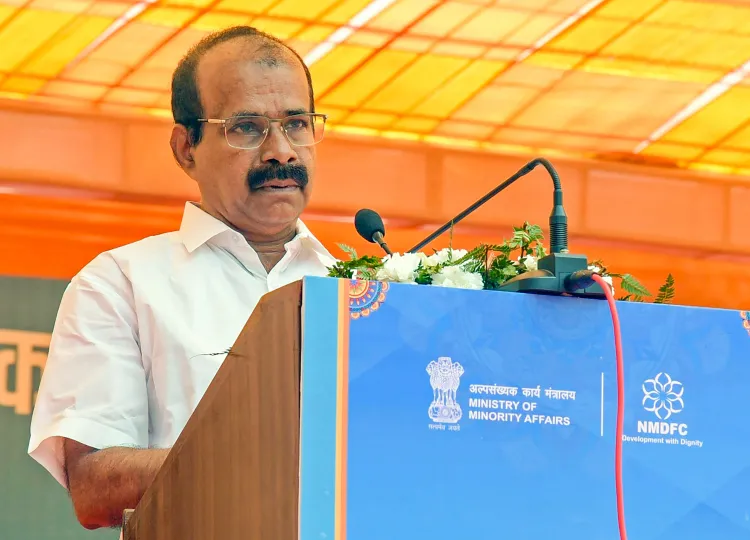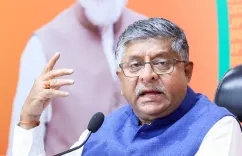Are USA’s Sanitary Measures on Marine Imports India-Specific?

Synopsis
Key Takeaways
- US sanitary measures apply to all exporting countries, not just India.
- The impact on seafood exports is influenced by various market factors.
- Government initiatives are enhancing fisheries infrastructure.
- MPEDA plays a crucial role in promoting seafood exports.
- Adopting advanced technologies is essential for sustainability.
New Delhi, Aug 19 (NationPress) The Minister of State for Fisheries, Animal Husbandry and Dairying, George Kurian, stated in Parliament that the sanitary compliance and sustainability requirements imposed by the Donald Trump administration regarding marine product imports are not solely directed at India but are applicable to all exporting nations to the United States.
He emphasized that the Department of Fisheries in India is fully aware of the trade regulations enacted by the US that affect various goods, including marine exports from India, citing that these requirements are comprehensive and affect numerous trading partners.
Furthermore, he highlighted that the impact on India's seafood exports, especially from states like Andhra Pradesh, is influenced by several factors including product differentiation, demand dynamics, quality benchmarks, and the agreements between exporters and importers.
International trade's sanitary and phytosanitary (SPS) measures are essential regulations that safeguard human, animal, and plant health from potential threats such as diseases, pests, and contaminants.
These protocols play a critical role in ensuring food safety and preventing the transmission of harmful organisms across borders.
The World Trade Organisation (WTO) has established an agreement on SPS measures, aiming to strike a balance between facilitating trade and ensuring necessary health protections.
The minister also assured that the Government collaborates with seafood exporters, industry groups, entrepreneurs, and State Fisheries Departments to prioritize the welfare of fishermen, seafood processors, and exporters.
Through initiatives like the Pradhan Mantri Matsya Sampada Yojana (PMMSY) and the Fisheries and Aquaculture Infrastructure Development Fund (FIDF), the Government is committed to enhancing fisheries infrastructure, including modernizing fishing ports, establishing cold chain facilities, and adopting advanced technologies such as Recirculatory Aquaculture Systems (RAS) and Biofloc.
Moreover, the Marine Products Export Development Authority (MPEDA) plays a pivotal role in promoting seafood exports by facilitating exporter registrations, setting quality standards, liaising with importers, conducting capacity-building initiatives, and participating in trade exhibitions.
To maintain sustainability and ensure a steady supply of Indian seafood to various export markets, including the U.S., the government is executing a Marine Mammal Stock Assessment Project and endorsing the installation of Turtle Excluder Devices (TEDs) in shrimp trawlers under PMMSY.
The PMMSY initiative also fosters activities like sea ranching, artificial reef creation, and other biodiversity conservation strategies to secure the livelihoods of fishers.
These comprehensive efforts, alongside species and market diversification, are designed to preserve export access, protect livelihoods, and guarantee the long-term viability of India’s marine sector.









